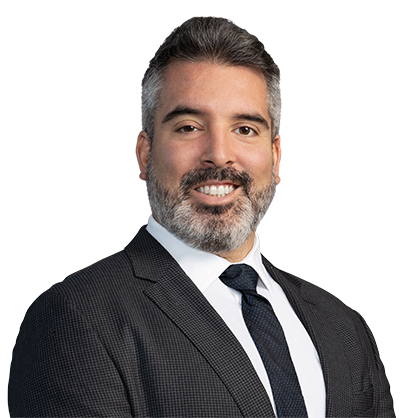Insights
Thought Leadership
Florida Legislative Update: Senate Bills 1730 and 784 Aim to Boost Housing Production
Florida's 2025 legislative session saw a flurry of bills introduced by state lawmakers aimed at addressing Florida's housing crisis and eliminating red tape experienced by developers navigating the local government approval process. At the conclusion of this year's legislative session, two bills were adopted and are currently awaiting Governor DeSantis' signature–Senate Bill (SB) 1730 and SB 784–that lawmakers hope will provide a path to bolstering housing production.
SB 1730 | Amendments to Florida's Live Local Act Aim To Remove Hurdles To Mixed-Income Housing Development
When first enacted in 2023, Florida's Live Local Act (LLA) was intended to spur mixed-income housing projects statewide in areas previously off-limits due to restrictive zoning policies. With SB 1730, Florida legislators returned to Tallahassee this session to address several loopholes and hurdles experienced by developers seeking approvals from cities and counties over the LLA's first two years.
Sponsored by Sen. Alexis Calatayud (R-Miami), SB 1730 attempts to further streamline the application process for affordable and workforce housing across the state and establishes additional development rights for qualifying projects. Below is a summary of highlights of SB 1730 that should be of interest to owners and developers considering LLA projects statewide:
- No Additional Public Hearings for Project Approvals. SB 1730 clarifies that all projects qualifying as affordable housing developments under Section 125.0155, F.S., or Section 166.04151, F.S., shall be administratively reviewed and approved without additional review by any elected or appointed county or municipal regulatory board.
- Retroactive Application for Maximum Density, Height, and Floor Area Ratio (FAR) in Event of Downzoning Efforts. Local governments may not restrict density, FAR, or height below the highest currently allowed or allowed on July 1, 2023, and no municipal or county governments may amend their respective charters to restrict height, density, floor area, and zoning of LLA projects. This key provision should negate efforts by a county or municipality to adopt rollback ordinances that would otherwise effectively reduce development densities otherwise available as comparator sites for LLA projects.
- PUD Development. Local governments must authorize LLA multifamily and mixed-use residential affordable housing projects in any portions of flex zoned areas and Planned Unit Developments (PUDs). In other words, PUDs cannot be interpreted by local governments to be off-limits.
- Limiting Building Moratoriums to 90 Days. Absent specific circumstances and for purposes related to stormwater management, local governments may no longer impose or enforce building moratoriums longer than 90 days within a three-year period that would delay the permitting or construction of a multifamily residential or mixed-use affordable housing development.
- Litigation and Prevailing Party Attorneys' Fees. SB 1730 directs state judges to expedite litigation between developers and local governments over LLA projects. Developers that prevail in litigation against local governments related to denials or delayed action on LLA projects are entitled to have their legal fees paid in an amount no greater than $250,000 Local governments are required to report to the state on a yearly basis on any ongoing litigation relating to affordable housing development.
- Parking Waivers. SB 1730 includes modifications to the categories and qualifications for parking reductions available to LLA projects. Upon request, local governments shall reduce the parking requirements on any qualifying development by 15 percent if (i) the development is located within a quarter of a mile of a transit stop, (ii) the proposed development is located within half a mile of a major transportation hub, or (iii) there exists available parking within 600 feet of the proposed development. SB 1730 also prevents local governments from requiring that available parking compensate for the reduction. Qualifying projects within transit-oriented development (TOD) areas are still granted an automatic 100 percent reduction in minimum parking requirements. Given that parking minimums are big contributors to project costs, SB 1730 should provide meaningful relief for LLA projects.
- Demolition by Administrative Approval. Counties and municipalities must now administratively approve the demolition of structures on properties associated with affordable housing developments, without any further action by elected or appointed county or municipal officials, or any other administrative board, so long as the demolition complies with state and local law. This change in state law could override significant protections and public hearing requirements currently exercised by counties and cities within historic districts.
- Preemptions for Affordable Housing on Historic Properties. Local governments may only restrict the height of an affordable housing project being developed within a historic district or that has a historically designated structure to the highest building currently allowed or allowed on July 1, 2023, within a radius of three-quarters of a mile of the proposed development. Local governments may also administratively require affordable housing projects developed within a historic district or that have a historically designated structure to comply with the local regulations relating to architectural design, such as façade replication, so long as it does not affect the height, floor area ratio, or density of the proposed project.
- Multifamily Development on Religious Properties. Local governments must now allow the development of multifamily housing on properties owned by religious institutions, regardless of whether local zoning codes permit residential uses on such properties, so long as 10 percent of the units to be constructed are for affordable housing.
SB 784 | Removing Public Hearings From Platting Process
Platting is a prerequisite in most counties and cities to subdividing land for new housing. While not unique to housing, platting has become a lengthy approval process that contributes to extended time frames and project costs in suburban and urban parts of the state where new housing production is in demand. Marking a bold departure from decades of local control over the platting approval process, SB 784 amends Section 177.071 of the Florida Statutes to require that all applications for plats or replats be administratively reviewed and approved.
SB 784 provides a clear and concise process for the review and approval of plats. SB 784 requires that if a plat or replat application complies with all requirements set forth in Section 177.091, it must be administratively approved with no further action or approval needed by any local governing body. SB 1730 mandates that the local government establish an ''authority'' – agency, department, or individual employee – to receive and process plats. Furthermore, local governments are required to explicitly establish and adhere to timelines as to the review and approval process. Within seven business days of receipt of a plat application, the designated authority shall notify the applicant of receipt and identify any missing documents or information, advising of the time frame for processing a complete plat application.
Finally, plats and replats located wholly within a municipality shall be under exclusive jurisdiction of said municipality. In places like Miami-Dade County, where the municipality and county currently require independent applications and development orders to be approved through dual plat committees, SB 784 would eliminate the need for county approval for plats within municipal boundaries, potentially saving applicants significant time and cost.
Conclusion
Both SB 1730 and SB 784 mandate that counties and cities implement an administrative framework to help reduce entitlement and permitting delays experienced within the housing industry whether years in the making or as a reaction to Florida's LLA. Unless vetoed by the Governor, these bills will take effect July 1, 2025.
For more information on these bills or their applicability to a specific property or development interests in Florida, contact Steven J. Wernick, Esq., AICP, or Carlos Lievano, Esq., in Day Pitney's Miami office.


